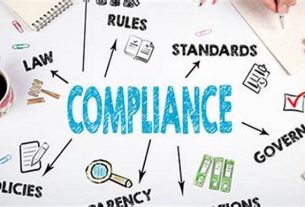As the world continues to grapple with economic uncertainty, there is no better time than now to start monitoring your business credit. Having a good understanding of your business credit profile not only helps you secure financing when times get tough, but it can also help you protect and grow your small business. A strong credit score will provide access to better loan terms, lower interest rates, more flexible repayment schedules, and higher borrowing limits. Additionally, having an up-to-date view of your financial health gives creditors greater confidence in their decision-making process. One valuable resource to consider is accessing a list of net 30 companies, which can help you identify potential business partners that offer net 30 payment terms and improve your cash flow management. By utilizing such a list, you can strategically choose partners who align with your financial goals and preferences.

What is Business Credit?
Business credit is a record of how well a company has managed its finances over time. The information contained on a business credit report includes payment history (including late payments), public records (such as bankruptcies or judgments), and any loans or lines of credit issued by banks or other lenders. This data helps lenders determine whether a potential borrower should be approved for a loan or line of credit, what interest rate should be charged, and what type of repayment plan should be offered.
Understanding Your Business Credit Score
Your business credit score will often play an important role in the lender’s decision-making process. The most widely used scoring model is the FICO Small Business Scoring System which ranges from 0–300—the higher the number the stronger your credit rating will be. This system works in much the same way that consumer scores do, taking into account different factors such as timely payment history, total outstanding debt and the total age of the accounts being reported on. It’s important to note that while personal scores are based solely on past behavior, some commercial scoring models may factor in current assets as well as future revenue projections when calculating risk associated with businesses seeking capital investments from lenders.
How To Monitor Your Credit Report
It’s important for all small businesses to regularly monitor their business credit reports to ensure accuracy and identify any potential issues before they affect their ability to secure funding. Fortunately, this can easily be done online through one of several reputable credit references agencies, such as Experian Business Credit Reports & Scores or Equifax Small Business Financial Exchange, where businesses can view their reports for free and pay a fee if they wish to access further details, including full copies of their reports. Both services offer detailed monitoring alerts so businesses can track changes to their profiles over time – allowing them to quickly identify discrepancies and take corrective action if necessary.
Set up an account with Net 30 suppliers
Having positive trade references is a key element in achieving a healthy score, as lenders look at these relationships when evaluating applications for additional funding opportunities – being able to demonstrate that both parties adhere to agreed payment terms reflects positively on both sides of the transaction, paying dividends down the line! An easy way for companies to demonstrate responsible use of extended payment terms is to set up accounts with net 30 suppliers who offer goods or services on invoices due after thirty days; this gives companies more flexibility in managing their cash flow without negatively impacting their overall financial standing within industry networks – here’s our list of net 30 suppliers who are offering savings opportunities right now!

Protect against identity fraud and unauthorized access
In today’s digital environment, identity theft is always something to be aware of – hackers have become increasingly sophisticated when it comes to targeting vulnerable systems, so it pays for SMBs to remain vigilant against unauthorized access attempts, whether they’re using cloud solutions or local storage solutions – setting up two-factor authentication protocols can go a long way towards protecting sensitive data, while also providing an extra layer of security during new customer/client sign-up processes, etc. In addition, tracking all user activity associated with accounts provides quick warning signs that someone may be attempting to gain unauthorized access, which in turn helps to prevent potential damage before it happens!
Conclusion:
By understanding how best to use the tools available, such as business/consumer reporting bureaus, along with maintaining regular monitoring routines (including setting up notifications/alerts), companies can stay ahead of the curve while maximizing opportunities and making the most of the resources the market throws at them, even in volatile times! Good luck out there!


